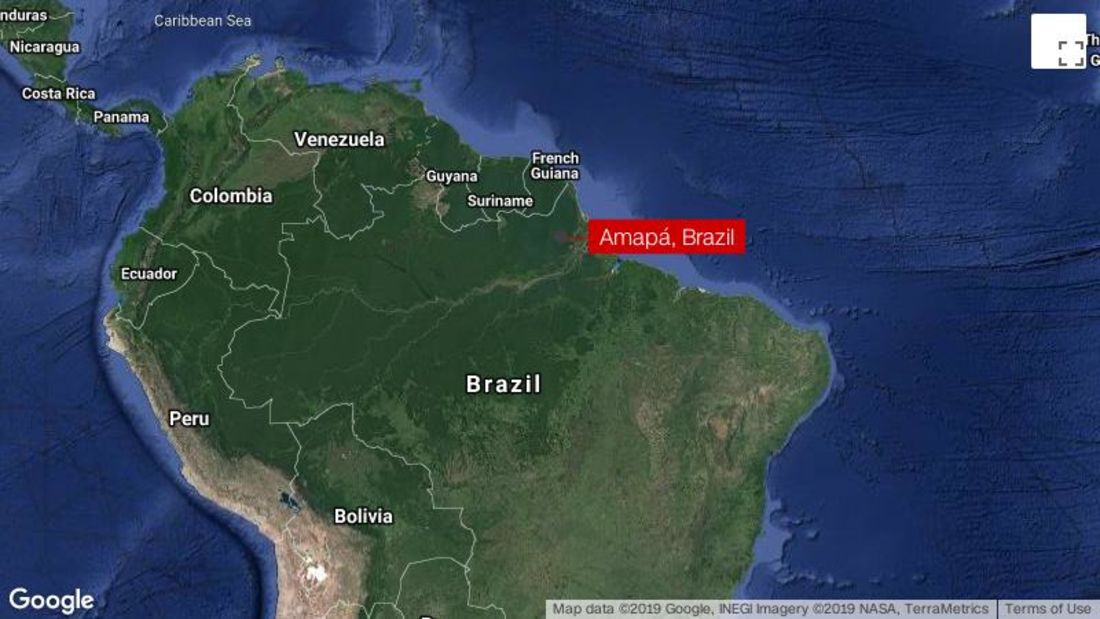After tribe leader's death, Bolsonaro repeats call to mine the Amazon

Brazil's president plans to exploit the Amazon05:18
(CNN)The international community is speaking out against the killing of an indigenous tribal leader in Brazil's Amazon, even as the country's president says there no evidence of foul play.
Emyra Wajãpi found dead on July 23 in Amapa, a region in northern Brazil, according to the tribe and the country's National Indigenous Foundation (FUNAI). The tribe says he was stabbed to death by "non-indigenous" people, after "15 armed invaders" had entered the area.
In a statement by the Association of Wajãpi Villages, the Apina Village Council reported examining the site of the murder and finding signs the death was caused by "non-indigenous people."

Brazilian Waiapi walk on the road of the Waiapi indigenous reserve, at Pinoty village in Amapa state in Brazil.
But Brazil President Jair Bolsonaro told reporters on Monday he was not convinced Wajãpi had been murdered.
"Up to now there is no strong evidence that this indigenous (chief) was murdered. There are several possibilities," he said. "The federal police are there, are being sent there to get to the bottom of the case and find out the truth about this."
In a news conference on Monday, Brazil's attorney general Rodolfo Soares said, "We still don't know exactly what the cause of death was and whether it was miners, hunters, non-indigenous people, or even if the dispute took place between indigenous groups."
He cautioned that nothing had been ruled out, and that the investigation is ongoing.
The conflicting accounts came as the United Nations High Commissioner for Human Rights, Michelle Bachelet, decried the killing and characterized it as part of a larger issue of "encroachment on indigenous land."
"The murder of Emrya Wajãpi, leader of the indigenous Wajãpi people, is tragic and reprehensible in its own right," she said on Monday in a written statement."
"It is also a disturbing symptom of the growing problem of encroachment on indigenous land -- especially forests -- by miners, loggers and farmers in Brazil," she added.

Bachelet called on Brazil's government to halt the incursion of mining in indigenous territories, which she said could "herald a new wave of violence aimed at scaring people off their ancestral lands."
Since Bolsonaro took office in January, he has been pushing to deliver on campaign promises to restore the country's economy by exploring the Amazon's economic potential.
He has proposed to open more areas of the Amazon to mining, and cut $23 million from the country's environmental enforcement agency. He has also stripped FUNAI's ability to identify and grant titles to indigenous territories.
"My intention is to regulate mining, to legalize mining, even for the indigenous who have the right to exploit mines on their property. The land is indigenous and that is their land," Bolsonaro told reporters on Monday.
"Of course, NGOs and other countries don't want this. They want the indigenous to remain trapped like in a zoo, like they're a pre-historic human," he said.
Carlos Rittl, executive secretary of the environment NGO network Observatorio do Clima (Climate Observatory), told CNN that loggers, farmers and miners are already taking advantage of reduced oversight to seize control of a growing area of land within the Amazon forest.
According to Amazon Watch, a non-profit advocacy organization working to protect the rainforest and indigenous peoples' rights, at least 14 cases of illegal advances into indigenous territories by land grabbers, loggers and wildcat miners were documented across Brazil in the first three months of the year.

Post a Comment